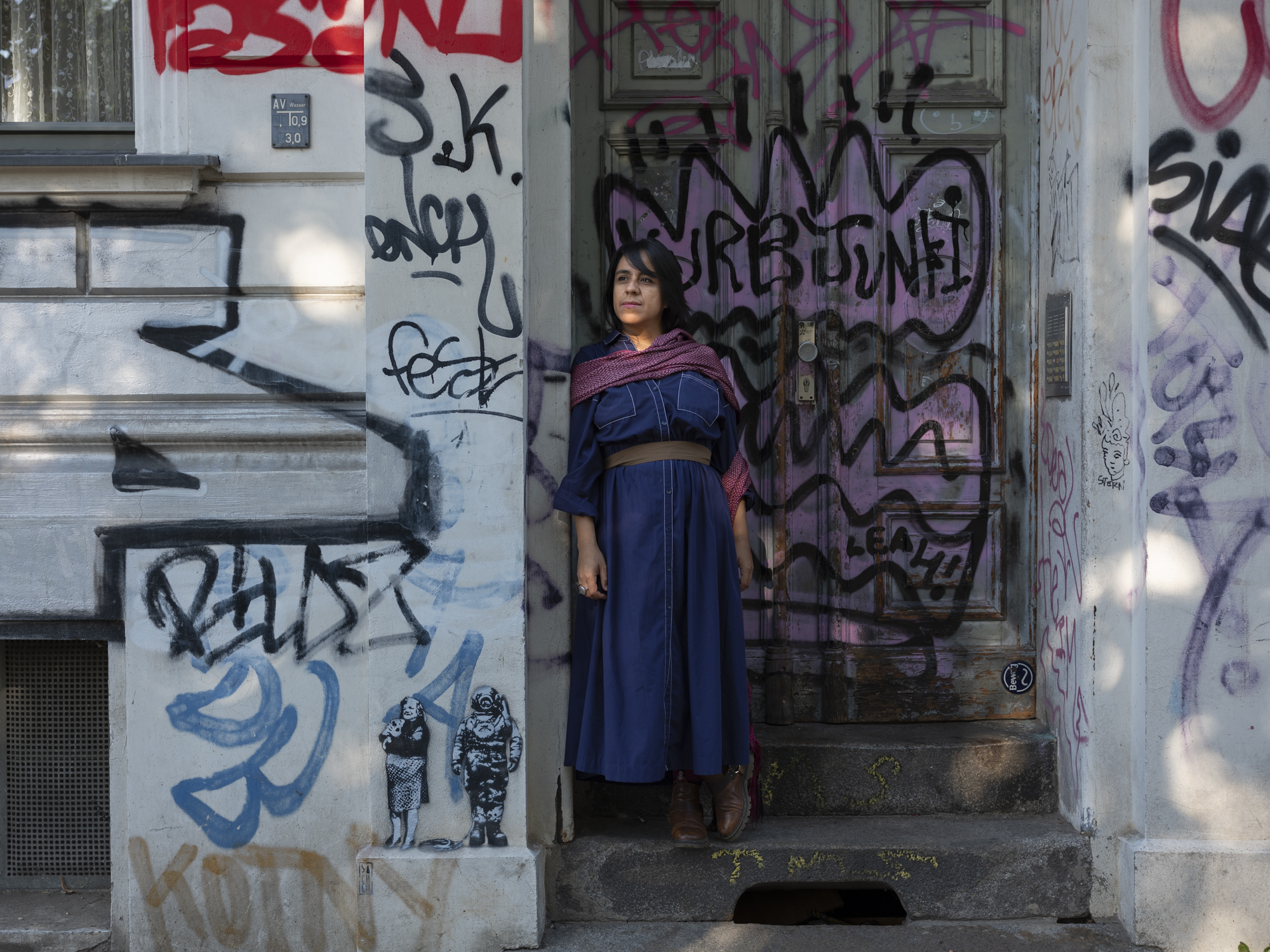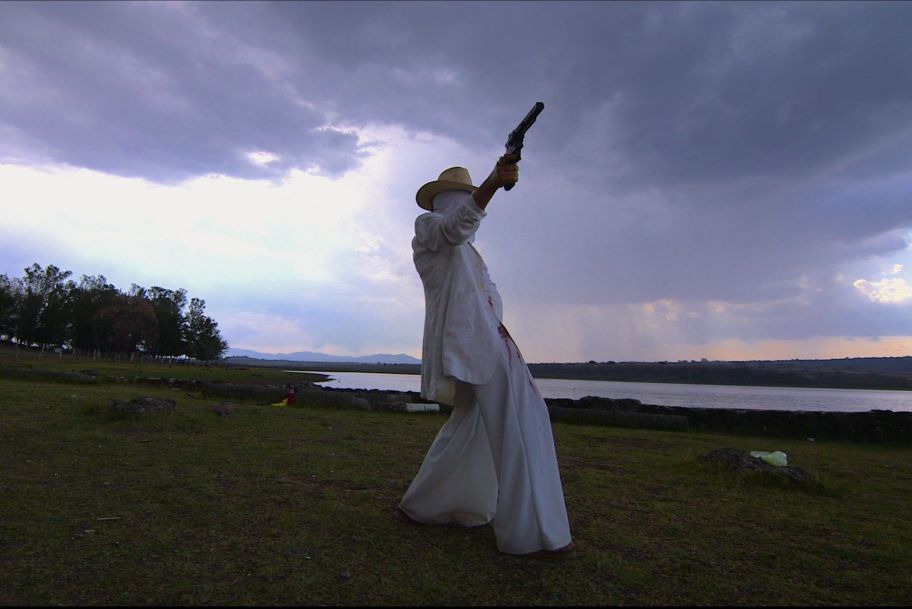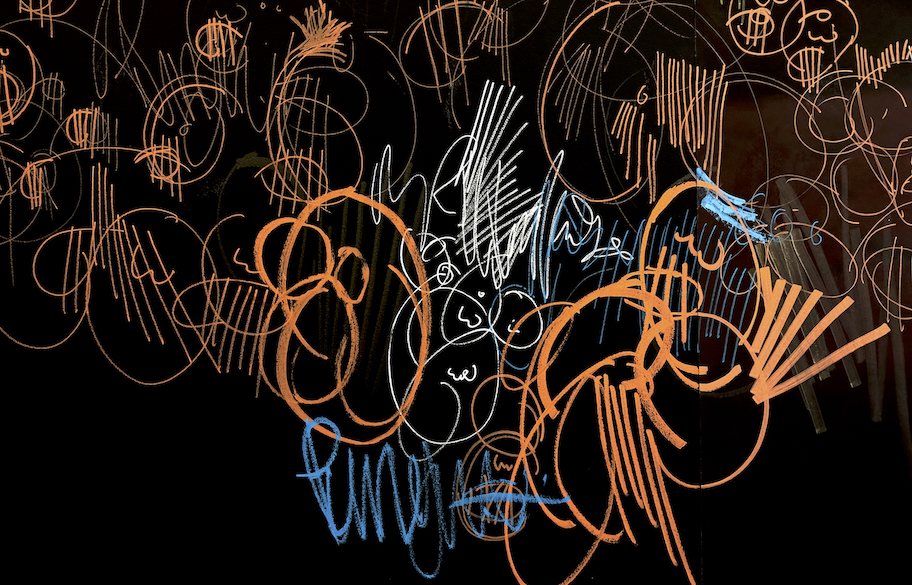Mexico, Music & Sound, 2022
Bárbara
Lázara

Starting from her early days of exploration in the performing arts (1999), passing through different crossovers of live presentations, concerts, on-site actions, or performances, the work of artist Bárbara Lázara (born Mexico City, 1976) reveals at least two vital elements that distinguish and articulate it: the translation of possibilities of space, and the principle of confusion.
These aspects usually lead to a series of twisted communions with the tools that Lázara has been exploring and developing, which have become increasingly dislocated and expansive throughout the more than two decades of sailing between every performative, sonorous, and discursive element of the body, the voice, and space.
A teacher, performer, and participant in a vast number of exhibitions, publications, as well as artistic residences, Lázara’s art corpus is in constant mutation and growth. The concerns and critical observations that encompass her work make it difficult to place it within a clear current in the Mexican artistic panorama – although this does not exempt her (on the contrary) from having a solid discourse through the different faces of her active creation, whether it is recording, collaboration, or action on site.
Throughout her career, Lázara has managed to form an expansive melting pot big enough to present group work and collective resonances within an art museum (Molde for Tótem, 2018), reflect on the spatial capacities of the voice through echolocation and documented actions (Grítenme Piedras, 2019), or even engage in a dialogue with projects by other artists (Bestias, with Israel Martínez, 2020). Clatter, expressiveness, and resonance enter into a spectral flow in which Lázara connects an uncertain dalliance with space, the unspeakable, even the phantasmagorical and empyrean; propitious grounds on which to trigger critical reflections on history, gender, and memory, where the active receiver has the opportunity to open a nurtured dialogue from different paths, detached from the imposition that words usually offer. The resulting experience is intimate and collective, contradictory and compatible, equally consistent throughout its parts. Lázara embarks with her audience to an unknown horizon, where surprise and the abyss of expectation assemble the minimum accurate footing, thus achieving powerful, free, and shocking moments, often freed from the predispositions, schemes, and vices on which sound exploration or contemporary performance recurrently relies.
In this way, Bárbara Lázara has created a body of work and critical reflection that amalgamates the functions and possibilities of listening, reading and rereading, as well as of becoming human or animal in wild environments, without the squaring/framing that often arises from technical virtuosity or musical references. Even within such dividing lines that the abstract performing arts inevitably set, the fiery dislocation in Bárbara Lázara’s work always includes a free fall of possibilities.
Text: Ricardo Pineda




